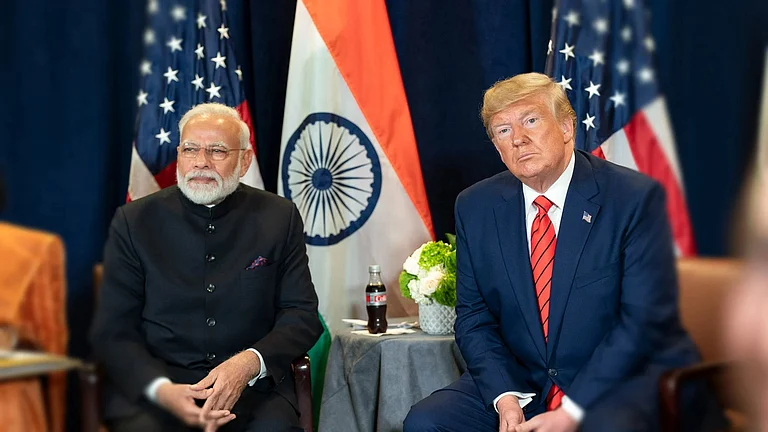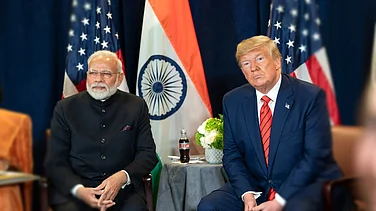In South vs North: India's Great Divide, author Nilakantan RS argues that South India has been given the short end of the stick by the Union government when it comes to resource allocation. This unfairness is aggravated by the fact that southern states have continually performed better than their northern counterparts in important indices across education, healthcare and economic well-being.
Why is there an unfair treatment in the first place? Nilakantan finds the flaw in how our democracy is designed; wherein states with higher population get higher representation, and ultimately have higher influence in the formulation and implementation of policies. The author advocates for radical decentralisation as a means to optimise Indian democracy and to make sure that states get the required autonomy in executing policies specific to their requirements. In an interaction with Outlook Business, Nilakantan RS reiterates his call for a decentralised democracy so that southern states are treated fairly within the context of the federal union. Edited excerpts:
In your book, you've drawn a connection between the relatively prosperous states and their low population growth rate. At the same time, you have not mentioned the factor of migrant labourers, who are majorly from the highly populous states. How do you view the contributions made by North Indian migrant labourers in the economies of the peninsular states?
In southern India, migrant labour is used most frequently for unskilled labour to keep wages down. I am not sure that's desirable from any perspective. The southern states are themselves nowhere near full employment and it's not as if they have low population density either. So, the argument of North India supplying labour to fuel the prosperity of peninsular India is both seriously problematic and facetious at once. We should stop making that.
And having said that, it's not like the migrant labour is still anywhere near significant as a ratio of the overall workforce in southern India compared to most other countries; simply because our density of population is high and available jobs are so low. Which is why we'd do well to back these questions with data points: how many jobs in the organized sector exist in each southern state and how many of those are taken by people from northern India?
Several subjects had to be moved from State list to Concurrent list after a point of time. For example, once state governments failed to make education as accessible as required, the Union had to step in with measures such as Jawahar Navodaya Schools. How do you view this phenomenon of Union taking more subjects under its purview because of states' inability to carry out its functions?
The Union Government is not some superior government that gets to monitor the state governments' performance and come up with policies where states fail. In a democracy, that failure is handled by voters at that layer of government. Tamil Nadu has no Navodaya Schools for instance. It's the state with the best gross enrolment ratio. So the Union Government has neither the moral authority nor the utilitarian track record to interfere in state subjects.
We have to be clear about this basic idea: democracy isn't about outcome; it's about a stable system that gives people a chance to truly reflect their will in their government. Whatever that layer of government may be. And we have to be even more clear about this: there is no hierarchy amongst the layers of government. People elect governments. It's an insult to the political dignity of citizens if one layer of government interferes or overrides the functions of another.
Among other things, economists attribute the proximity to the coast as a factor behind the relatively better economies of the peninsular states. Policies such as Freight Equalisation (1952) has clearly been a disadvantage to inland states like Bihar. This is something that you have barely mentioned in your book. Do you find it merely coincidental that it is the coastal states who have done better than the inland ones?
Again, this is a problematic argument given the context of this book. This policy had little effect on governance or government budgets at the state level, given how the Finance Commission allocation ratios for states work. So, to argue that the Freight Equalisation Policy somehow caused a lower gross enrolment ratio or infant mortality ratio is absurd. Access to the sea is surely a good thing. But those kinds of geographic advantages are not the deciding factors for modern economies. Modern industries — be they in manufacturing or services — are set up where the industry can find skilled and healthy workforce. And that is achieved by governance. Also, the cleavages between the south and the north started showing up seriously only in the 90s when the Freight Equalisation was no longer in effect.
Having said all that, it's still immaterial in terms of what we need to do from now on: which is, we need far greater decentralisation. Extreme decentralisation, even. Our past errors in policy — whatever they may be and however true or false they may be — are no reason to skew future policy one way or another for states. Especially when that skew is against what the desired policy is. So, either way, I find the Freight Equalisation argument a little strange and pointless. At best it's ignorant; at its worst it's a sly call for status-quo which renders the southern states as vassal states.
If one looks at the history of Indian subcontinent during the British rule, or even before that, it is clear that the communities and regions that were treated unfairly remained poor and backward. However, your book argues that the southern states are getting a raw deal from the Centre fiscally as well as politically, and yet they remain ahead of other states in per capita income and other parameters. How do you explain this?
Social inequality resulting from historical injustices that continue to this day as prejudice — such as caste oppression, religious bigotry or gender-based discrimination — exists in southern India too. It's not my case or anyone's case that southern India is some kind of utopia. It's not. All those problems exist in the south too. The hope is that, with education, it will reduce over time. That correlation is borne out in some senses; but the exceptions are too glaring to even suggest we are anywhere near solving that.
So, the argument of the book is to treat southern states fairly within the context of the federal union. That's no guarantee that other problems will go away.
In terms of fiscal autonomy, Indian urban local bodies are one of the weakest around the world. Would it be right to say that the fiscal imbalance in India is not due to the Union unfairly tightening its purse strings, but rather a result of pervasive centralisation that has taken hold of Indian democracy at all levels?
It's due to the Union holding its purse strings the way it does that the states are forced to hold theirs the same way. You are correct in that the way democracy works in this country has contributed to it. Local bodies are weak and in terrible shape. But that's no reason to view the Union Government in less harsh terms!
Which is why the solution I propose in the book — Gamified Direct Democracy — allows for a radical inversion of this pyramidal structure.
According to data available with the RBI, several South Indian states that did well on social indicators were poorly placed in fiscal management. In fact, an RBI report from June 2022 actually compared these states to Sri Lanka, a country that had good social indicators before going bust financially. What are your views on this argument?
That's absurd in the Indian context given the way our tax systems and devolution of revenues work. Consider Telangana. It has the highest negative difference between central transfers and the states' own revenues as a ratio of its GSDP. The easiest way to fix that is to improve central transfers to Telangana given it already has high state level taxes too and is taxing its citizens twice over just because they live in a state with relatively low population growth and relatively high per capita income. For the RBI or anyone using that report to then argue — implicitly or explicitly — that the state is fiscally profligate and hence should cut down on expenditure is indistinguishable from how colonial administrations behave towards their colonies. If Telangana were an independent country, it'd be revenue surplus. So, yeah, that RBI report is an example of undemocratic absurdity.
When it comes to populist measures, there's a narrative war going around as to what counts as 'freebie' and what does not. It is also evident that this debate picks up undue attention every time there is an election around the corner. In such a case, wouldn't a uniform definition of 'freebie' help stop such cheap election season battles?
No. In a democracy, people decide that. At each layer of government. And if they go wrong, they suffer consequences and correct themselves. That's why a democracy exists. Any uniform a priori definition is illiberal at best and fascist at worst. But worse, who gets to decide that? Another layer of government? Unelected bureaucracy? Unelected judges? You? Me? These debates often forget there is a cost to democracy and we all as a society agreed to pay that because it's worth it. To forget that is the most illiberal thing one can do. If you truly want to propose an improvement, propose a systemic change in the way we elect and run governments!
And again, at the expense of repeating myself, the radical inversion of the pyramidal structure I propose in the book, through Gamified Direct Democracy, will achieve what you seek through democratic means.































